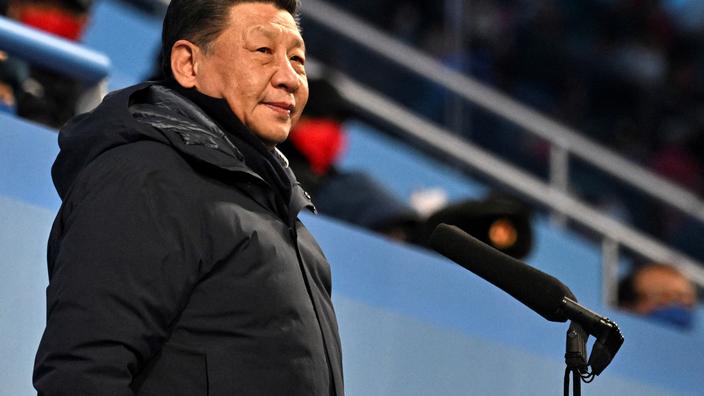The National Assembly rejected this Friday, February 4, a text on human organ trafficking, at the end of a debate dominated by accusations of forced removals targeting China, the same day of the official opening of the Winter Olympics. from Beijing.
Read alsoIn Beijing, the Olympics in the iron hand of Xi Jinping
The bill put forward by MP Frédérique Dumas, from the small opposition group Libertés et territories, was emptied of its substance via so-called “
deletion
” amendments from the LREM group. Frédérique Dumas however obtained the support of all the oppositions on the left (PCF, LFI, PS) as well as on the right (LR and UDI), and even of certain elected representatives of the majority. Although her text aimed to establish a general mechanism reinforcing the vigilance of French health establishments in the face of organ trafficking and “
transplant tourism
”, the debates targeted, as she wished, a single country: China.
The explanatory memorandum to this bill “
aimed at ensuring the ethical respect of organ donation by our non-European partners
” was in fact essentially devoted to a denunciation of this country.
A choice "
assumed
" by the parliamentarian, who argued that if these practices are linked around the world to mafia and criminal networks, in China they are part of an "
institutionalized
" state policy.
A vast forced organ harvesting center?
Based on testimonies and investigations such as those of the American Ethan Gutmann, she notably accused Beijing of having set up in the Aksu region, in Xinjiang (north-west), a vast center for the forced collection of organs on detainees from the Uyghur Muslim minority. Many speakers denounced the "
horrors
" alleged against Beijing in this area, and the promotion to wealthy foreign patients of transplants in China, without guarantee of the legal origin of the grafts. “
We cannot remain deaf to the multiple alerts on organ trafficking
” in this country, affirmed the communist Stéphane Peu. For Constance Le Grip (LR), "
the case of China is the most serious
" in this area.
The text's opponents centered their criticisms on its "
inoperative
" character.
The proposed law required French medical establishments to verify that their non-European partners comply with the ethical rules valid in France.
Without this guarantee, agreements with these establishments outside Europe would not be authorised.
The French rules provide in particular for free organ donation and the consent of the donor.
Read alsoJO: “China is also a country of winter sports”, assures Thomas Bach
Jean-François Mbaye (LREM) judged "
virtually zero
" the chances that this procedure will make it possible to put an end to the practices denounced.
He also pointed out that to date, no network of “
transplant tourism
” or organ trafficking has been identified between France and China.
Michèle de Vaucouleurs (MoDem) pointed to the risk of “
paralyzing international partnerships
”.
This debate has once again put the issue of human rights in China in the parliamentary spotlight.

